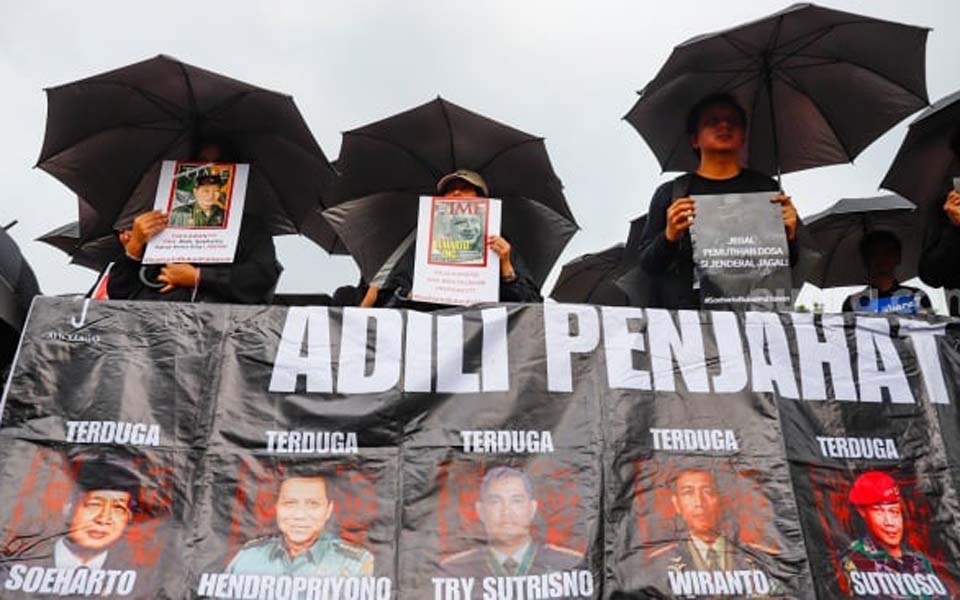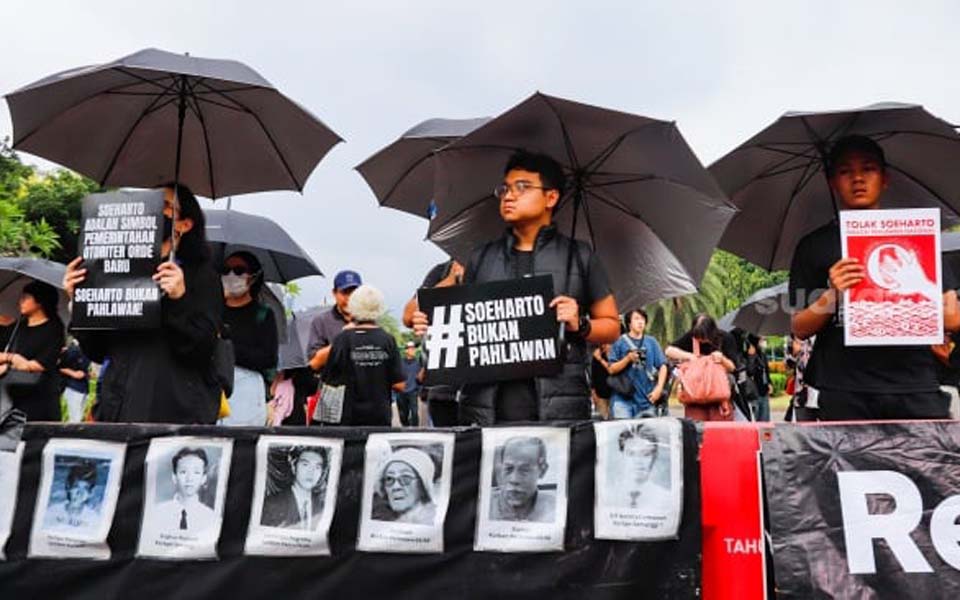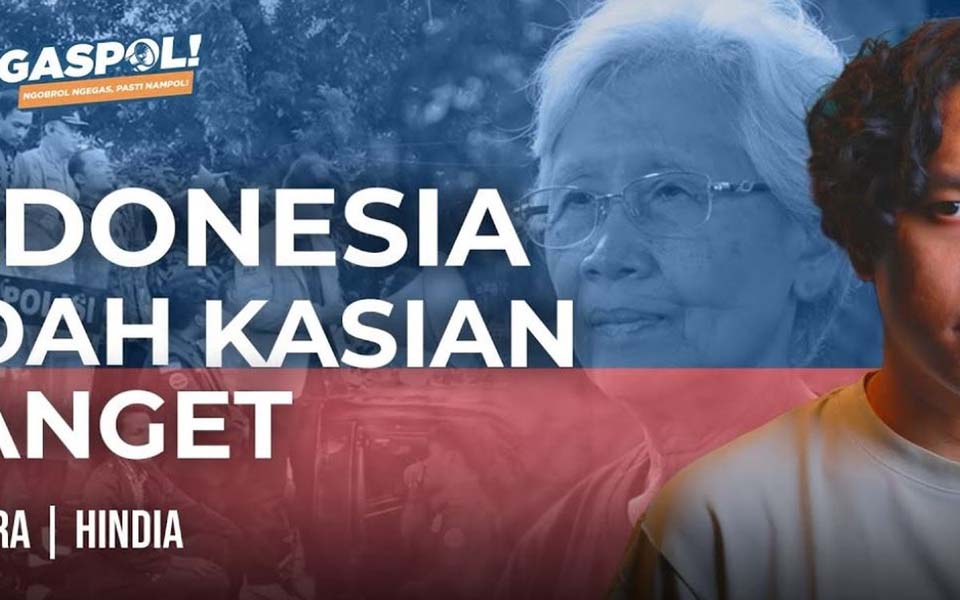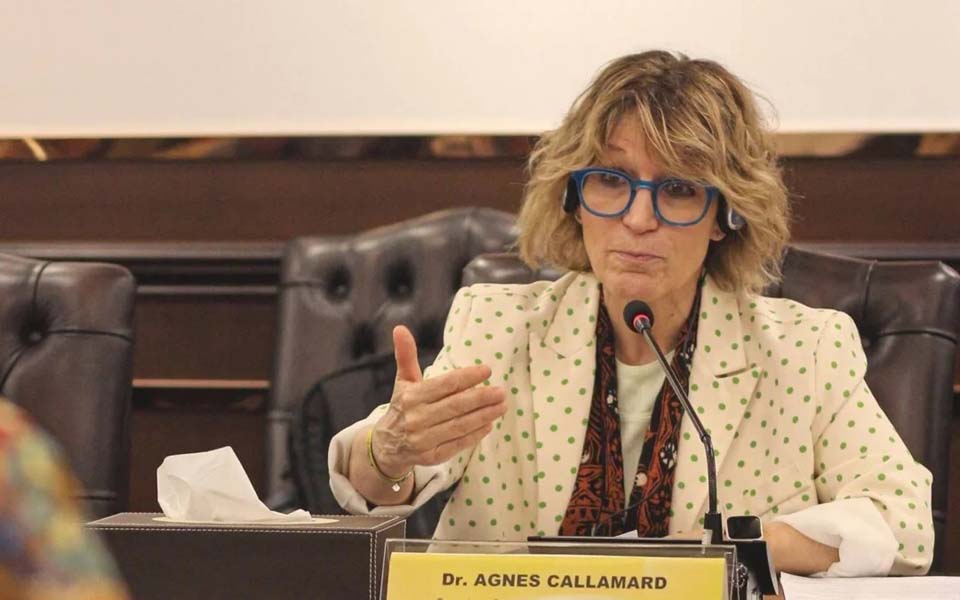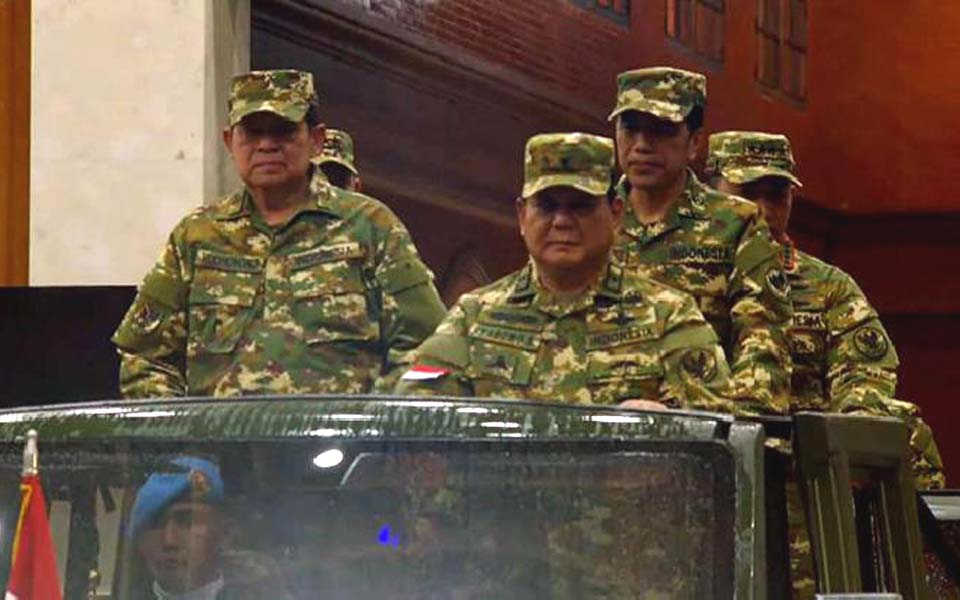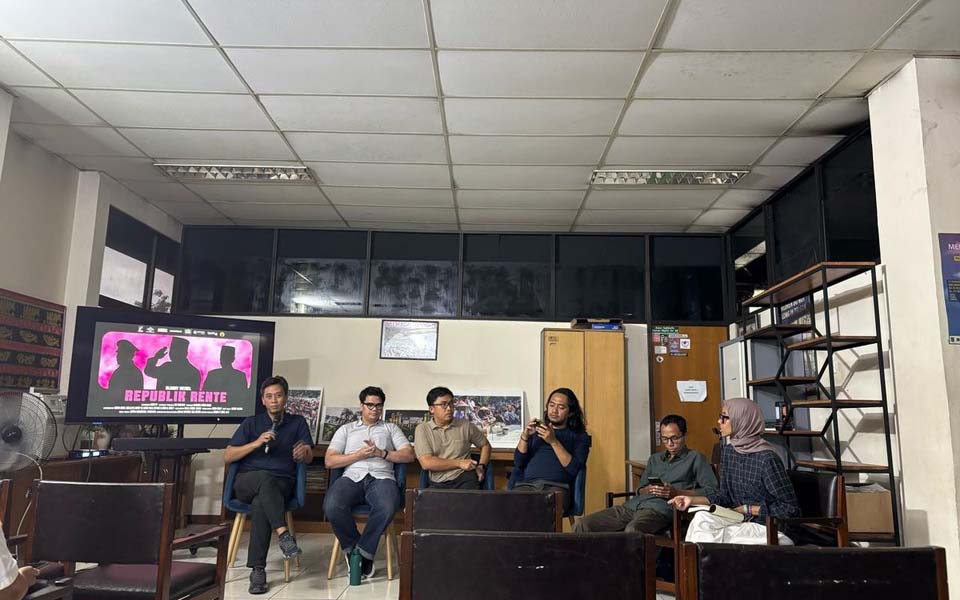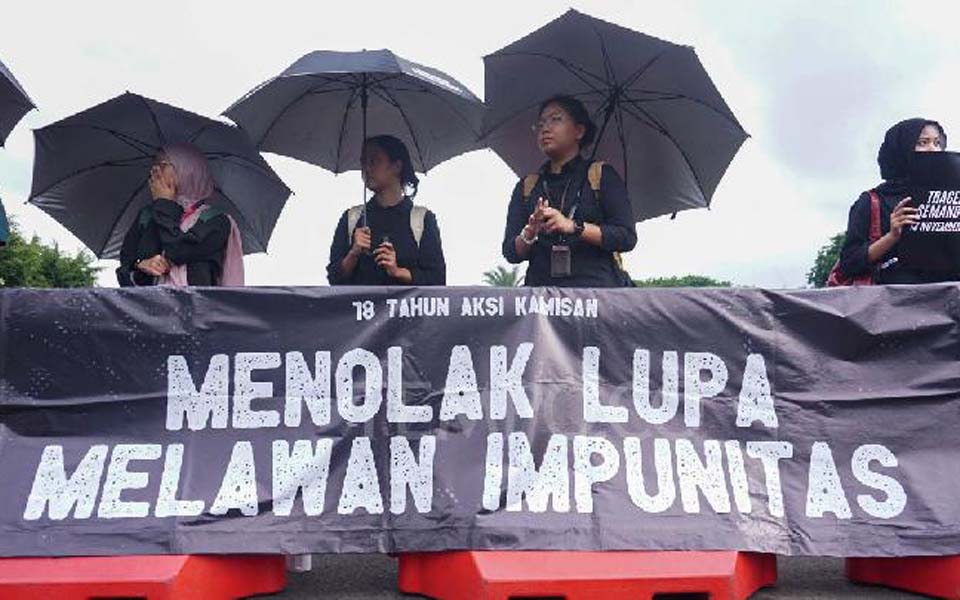Jakarta – A people’s conference titled Fighting Criminalisation and Wining Democracy (Lawan Kriminalisasi dan Rebut Demokrasi) was held at the Jakarta Legal Aid Foundation (LBH Jakarta) offices in Central Jakarta on April 9.
The event was held in response to the growing number of cases of movement activists from various sectors of society being criminalised. The conference was initiated by a number of different organisations concerned with cases of criminalisation in Indonesia including among others LBH Jakarta, the Indonesian People’s United Resistance (PPRI), the Center for Information and Communication Technology Studies Foundation (ICT Watch) and Safenet.
The conference was opened by LBH Jakarta Director Alghiffari Aqsa who outlined various cases of activists being criminalised in order to gag the people’s struggle.
“For me the definition of criminalisation is non-criminal actions but which are then prosecuted and the law becomes a tool of power. The criminalisation of [former Corruption Eradication Commission (KPK) commissioner] Bambang Widjojanto and Anies Baswedan were quite possibly aimed at weakening the KPK. It is also possible that the motive is to gag activists giving voice to the suffering of the Papuan people such as [recently released high-profile Papuan political prisoner] Filep Karma”, said Alghiffari.
Alghiffari continued by outlining the results of several institutions into the performance of the Indonesian national police.
“Based on the research results of the World Justice Project, the rule of law index in Indonesia is only 0.5. Our index for judicial system correction is only 0.1-1. Meaning that in a test of 10 questions, we only got one right. This indicates that our national police cannot be reformed. LBH Jakarta research also shows that for every 10 people arrested by the national police, eight suffer physical intimidation. There is no other way to reform the national police except for an internal revolution of the national police or placing the national police in the correct place so they are no longer a threat to the social movements and the freedom of expression”, he explained.
The conference also presented testimonies by victims of criminalisation including that of PT Nanbu Plastics Indonesia worker Saiful Anam. A Facebook status update by Saiful on November 20, 2015 was reported by his employer to police. Yet the trade union led by Saiful was in the process of advocating for contract workers at the factory.
LBH Jakarta public defenders Obed Sakti Dominika and Tigor Gemdita Hutapea were criminalised for assisting workers demonstrating against Government Regulation 78/2015 on setting the minimum wage.
NiasBangkit.com editor in chief Donny Iswandono was reported to police for allegedly tarnished the reputation of the regent of Nias Island because it reported protests by a Nias community against alleged corruption committed by the regent.
Anti-corruption activist Ronny Maryanto who reported findings alleging irregularities in the 2014 presidential election was reported for defamation to police by Greater Indonesia Movement Party (Gerindra) deputy chairperson Fadli Zon.
The conference presented 15 speakers as sources from various social organisations in Indonesia. They included Yeni Rosa Damayanti, Esti Setyo Rini (Subang worker), Dadang Trisasongko (TI), Azmir (KPBI worker), Tigor Gemdita Hutapea (LBH Jakarta), Sinung Karto (AMAN), Jeffry Wanda (AMP), Adi Purnomo (KPA), Ramses Arwan (SBMI), Ariska Kurniawati (SP), Dika Mohammad (SPRI), Hasyim (AJI), Adiani Viviana (Elsam), Erasmus (ICJR) and Nur Cholis (Komnas HAM).
The event also included a musical and fine art performance by the Indonesian Cultural Society Union (SeBUMI). In the performance, SeBUMI also articulated the criminalisation suffered by writer Saut Situmorang and the banning of artistic performance that are increasingly occurring in Indonesia.
The conference produced a manifesto signed by all conference participants which was read out at the final even as a form of resistance by the social movements against criminalisation.
The Indonesian People’s Manifesto against Criminalisation, Winning Democracy!
Together, we endured the long years without democracy under the New Order regime of former President Suharto. Life in an era without political freedoms, freedom of belief, expression, religion and recreation and declaring differences was not a humane life. The long ranks of victims, the political prisoners, the criminalisation and the persecution as a result of the New Order dictatorship, we will always remember, we will never forget, because this reality destroyed the most important aspect of our humanity as a people and nation that (should have been) civilised.
We are aware that efforts to return to a situation like the New Order, both by remnants of the old forces of the regime as well as the new rulers that can be seen by the criminalisation, intimidation and persecution of critical voices. Because of this therefore, we must defend the gains of a struggle that was full of the blood, tears and sweat of the fighters for this democracy and reform. We do not want to again live in an era without democracy. We do not want the ordinary people to become the victims of the interests of those in power, corporations, the military and police who obstruct political freedoms in the struggle for prosperity, either though the direct breaking up of actions (demonstrations) and campaigns that are tyrannical and brutal, misguided justice or intimidation and persecution.
Thus, we, the People of Indonesia who are fighting for democracy declare:
- Fight criminalisation and all types of regulations and legal instruments that have the potential either directly or indirectly to criminalise the people;
- Free all victims of criminalisation and political prisoners;
- Repeal all legal instruments that obstruct and threaten political freedom, the freedom of expression, belief and religion, and opportunities to fulfill the civil, political, economic, social and cultural rights of the people;
- Law enforcement that is just, not ‘blunt’ for those at the top and ‘sharp’ for those at the bottom.
Because, without democracy, we cannot hope to be able to fight for the people’s happiness as a people who are modern and civilised, cultured and prosperous.
Long Live the People!






